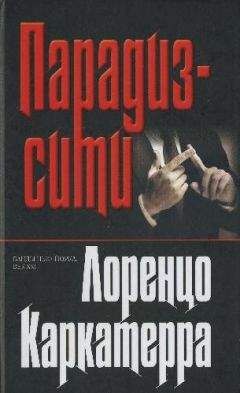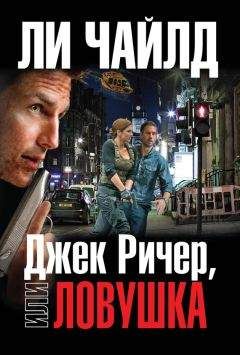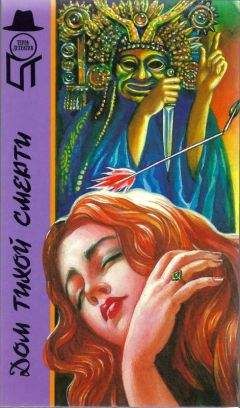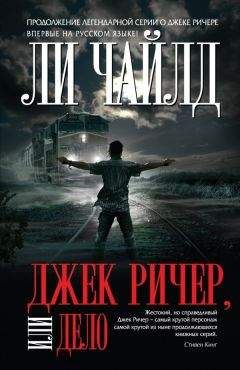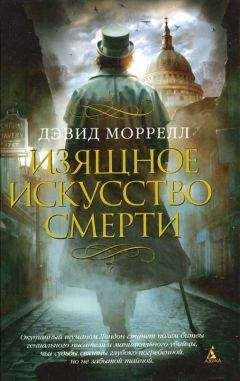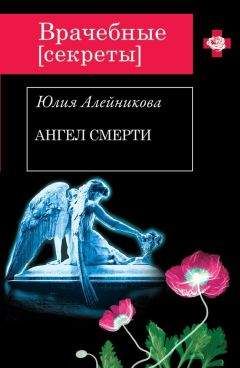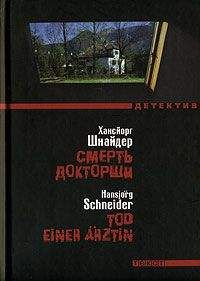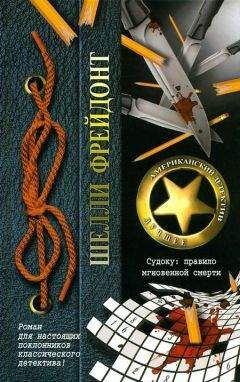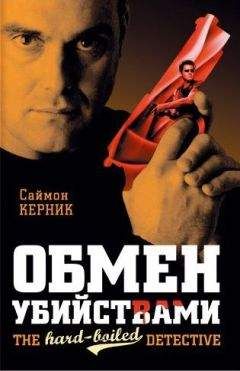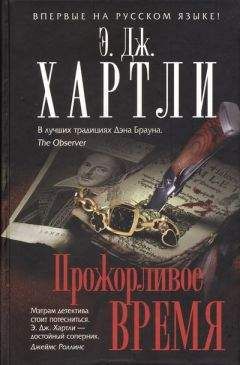Ли Чайлд - "Этаж смерти" with W_cat
Скачивание начинается... Если скачивание не началось автоматически, пожалуйста нажмите на эту ссылку.
Жалоба
Напишите нам, и мы в срочном порядке примем меры.
Описание книги ""Этаж смерти" with W_cat"
Описание и краткое содержание ""Этаж смерти" with W_cat" читать бесплатно онлайн.
Маргрейв — крохотный идеальный городок. Настолько идеальный, что это пугает.
Бывший военный полицейский Джек Ричер, ведущий кочевой образ жизни, приходит в Маргрейв, намереваясь покинуть город через пару дней. Однако в этот момент в Маргрейве происходит первое убийство за тридцать лет. Его вешают на Ричера, единственного чужака в городе. И для него начинается кошмар... первым действием которого становятся выходные в тюрьме, на этаже смерти, в обществе заключенных, отбывающих пожизненное заключение.
По мере того, как начинают просачиваться отвратительные тайны смертельного заговора, поглотившего весь город, растет счет трупам. И смерть становится эпидемией.
[810] “What does Pluribus mean?” I asked him.
[811] He wouldn’t answer. Just kept on shaking his head. His eyes were screwed shut with terror.
[812] “Is it a code for something?” I said.
[813] He wasn’t hearing me. The conversation was over. I gave it up and we lapsed back into silence. That suited me well enough. I didn’t want to know anything more. I didn’t want to know anything at all. Being an outsider and knowing Hubble’s business didn’t seem to be a very smart combination. It hadn’t done the tall guy with the shaved head a whole lot of good. I wasn’t interested in sharing the same fate as him, dead at a warehouse gate, partially hidden under some old cardboard, two holes in my head, all my bones smashed. I just wanted to pass the time until Monday, and then get the hell out. By next Sunday, I planned to be a very long way away indeed.
[814] “OK, Hubble,” I said. “No more questions.”
[815] He shrugged and nodded. Sat silent for a long time. Then he spoke, quietly, with a lot of resignation in his voice.
[816] “Thanks,” he said. “It’s better that way.”
[817] I WAS ROLLED OVER ON THE NARROW COT TRYING TO FLOAT away into some kind of limbo. But Hubble was restless. He was tossing and turning and blowing tight sighs. He was coming close to irritating me again. I turned to face him.
[818] “I’m sorry,” he said. “I’m very uptight. It was doing me good just to talk to somebody. I’d go crazy in here on my own. Can’t we talk about something else? What about you? Tell me about yourself. Who are you, Reacher?”
[819] I shrugged at him.
[820] “I’m nobody,” I said. “Just a guy passing through. I’ll be gone on Monday.”
[821] “Nobody’s nobody,” he said. “We’ve all got a story. Tell me.”
[822] So I talked for a while, lying on my bed, running through the last six months. He lay on his bed, looking at the concrete ceiling, listening, keeping his mind off his problems. I told him about leaving from the Pentagon. Washington, Baltimore, Philadelphia, New York, Boston, Pittsburgh, Detroit, Chicago. Museums, music, cheap hotels, bars, buses and trains. Solitude. Traveling through the land of my citizenship like a cheap tourist. Seeing most things for the first time. Looking at the history I’d learned in dusty schoolrooms half a world away. Looking at the big things that had shaped the nation. Battlefields, factories, declarations, revolutions. Looking for the small things. Birthplaces, clubs, roads, legends. The big things and the small things which were supposed to represent home. I’d found some of them.
I told Hubble about the long hop through the endless plains and deltas all the way down from Chicago to New Orleans. Sliding around the Gulf Coast as far as Tampa. Then the Greyhound blasting north toward Atlanta. The crazy decision to bail out near Margrave. The long walk in the rain yesterday morning. Following a whim. Following some half-remembered note from my brother saying he’d been through some little place where Blind Blake might have died over sixty years ago. As I told him about it, I felt pretty stupid. Hubble was scuffling with a nightmare and I was following a meaningless pilgrimage. But he understood the urge.
[823] “I did that once,” he said. “On our honeymoon. We went to Europe. We stopped off in New York and I spent half a day looking for the Dakota building, you know, where John Lennon was shot. Then we spent three days in England walking around Liverpool, looking for the Cavern Club. Where the Beatles started out. Couldn’t find it. I guess they knocked it down.”
[824] He talked on for a while. Mostly about traveling. He’d taken plenty of trips with his wife. They’d enjoyed it. Been all over, Europe, Mexico, the Caribbean. All over the States and Canada. Had a great time together.
[825] “Don’t you get lonely?” he asked me. “Traveling on your own all the time?”
[826] I told him no, I enjoyed it. I told him I appreciated the solitude, the anonymity. Like I was invisible.
[827] “How do you mean, invisible?” he said. He seemed interested.
[828] “I travel by road,” I said. “Always by road. Walk a bit, and ride the buses. Sometimes trains. Always pay cash. That way there’s never a paper trail. No credit card transactions, no passenger manifests, nothing. Nobody could trace me. I never tell anybody my name. If I stay in a hotel, I pay cash and give them a made-up name.”
[829] “Why?” he said. “Who the hell’s after you?”
[830] “Nobody,” I said. “It’s just a bit of fun. I like anonymity. I feel like I’m beating the system. And right now, I’m truly pissed at the system.”
[831] I saw him fall back to thinking. He thought a long time. I could see him deflate as he struggled with the problems that wouldn’t go away. I could see his panic come and go like a tide.
[832] “So give me your advice about Finlay,” he said. “When he asks me about the confession, I’ll say I was stressed-out because of some business situation. I’ll say there was some kind of rivalry, threats against my family. I’ll say I don’t know anything about the dead guy or anything about the phone number. I’ll deny everything. Then I’ll just try to settle everything down. What do you think?”
[833] I thought it sounded like a pretty thin plan.
[834] “Tell me one thing,” I said. “Without giving me any more details, do you perform a useful function for them? Or are you just some kind of onlooker?”
[835] He pulled on his fingers and thought for a moment.
[836] “Yes, I perform a useful function for them,” he said. “Crucial, even.”
[837] “And if you weren’t there to do it?” I asked him. “Would they have to recruit someone else?”
[838] “Yes, they would,” he said. “And it would be moderately difficult to do that, given the parameters of the function.”
[839] He was rating his chances of staying alive like he would rate a credit application up at his office.
[840] “OK,” I said. “Your plan is as good as you’re going to get. Go for it.”
[841] I didn’t see what else he could do. He was a small cog in some kind of a big operation. But a crucial cog. And nobody wrecks a big operation for no reason. So his future was actually clear-cut. If they ever figured it was him who had brought in the outside investigator, then he was definitely dead. But if they never found that out, then he was definitely safe. Simple as that. I figured he had a good enough chance, because of one very persuasive fact.
[842] He had confessed because he had thought prison was some kind of a safe sanctuary where they couldn’t get him. That had been part of his thinking behind it. It was bad thinking. He’d been wrong. He wasn’t safe from attack, quite the reverse. They could have got him if they had wanted to. But the other side of that particular coin was that he hadn’t been attacked. As it happened, I had been. Not Hubble. So I figured there was some kind of a proof there that he was OK. They weren’t out to get him, because if they had wanted to kill him, they could have killed him by now, and they would have killed him by now. But they hadn’t. Even though they were apparently very uptight right now because of some kind of a temporary risk. So it seemed like proof. I began to think he would be OK.
[843] “Yes, Hubble,” I said again. “Go for it, it’s the best you can do.”
[844] The cell stayed locked all day. The floor was silent. We lay on our beds and drifted through the rest of the afternoon. No more talking. We were all talked out. I was bored and wished I had brought that newspaper with me from the Margrave station house. I could have read it all over again. All about the president cutting crime prevention so he could get re-elected. Saving a buck on the Coast Guard today so he could spend ten bucks on prisons like this one tomorrow.
[845] At about seven the old orderly came by with dinner. We ate. He came back and picked up the tray. We drifted through the empty evening. At ten the power banged off and we were in darkness. Nightfall. I kept my shoes on and slept lightly. Just in case Spivey had any more plans for me.
[846] AT SEVEN IN THE MORNING THE LIGHTS CAME BACK ON. Sunday. I woke up tired, but I forced myself to get up. Forced myself to do a bit of stretching to ease off my sore body. Hubble was awake, but silent. He was vaguely watching me exercise. Still drifting. Breakfast arrived before eight. The same old guy dragging the meal cart. I ate the breakfast and drank the coffee. As I finished up the flask, the gate lock clunked and sprang the door. I pushed it open and stepped out and bumped into a guard aiming to come in.
[847] “It’s your lucky day,” the guard said. “You’re getting out.”
[848] “I am?” I said.
[849] “You both are,” he said. “Reacher and Hubble, released by order of the Margrave PD. Be ready in five minutes, OK?”
[850] I stepped back into the cell. Hubble had hauled himself up onto his elbows. He hadn’t eaten his breakfast. He looked more worried than ever.
[851] “I’m scared,” he said.
[852] “You’ll be OK,” I said.
[853] “Will I?” he said. “Once I’m out of here, they can get to me.”
[854] I shook my head.
[855] “It would have been easier for them to get you in here,” I said. “Believe me, if they were looking to kill you, you’d be dead by now. You’re in the clear, Hubble.”
[856] He nodded to himself and sat up. I picked up my coat and we stood together outside the cell, waiting. The guard was back within five minutes. He walked us along a corridor and through two sets of locked gates. Put us in a back elevator. Stepped in and used his key to send it down. Stepped out again as the doors began to close.
[857] “So long,” he said. “Don’t come back.”
[858] The elevator took us down to a lobby and then we stepped outside into a hot concrete yard. The prison door sucked shut and clicked behind us. I stood face up to the sun and breathed in the outside air. I must have looked like some guy in a corny old movie who gets released from a year in solitary.
[859] There were two cars parked in the yard. One was a big dark sedan, an English Bentley, maybe twenty years old, but it looked brand-new. There was a blond woman in it, who I guessed was Hubble’s wife, because he was on his way over to her like she was the sweetest sight he ever saw. The other car had Officer Roscoe in it.
[860] She got out and walked straight over to me. Looked wonderful. Out of uniform. Dressed in jeans and a soft cotton shirt. Leather jacket. Calm intelligent face. Soft dark hair. Huge eyes. I’d thought she was nice on Friday. I’d been right.
[861] “Hello, Roscoe,” I said.
[862] “Hello, Reacher,” she said, and smiled.
[863] Her voice was wonderful. Her smile was great. I watched it for as long as it lasted, which was a good long time. Ahead of us, the Hubbles drove off in the Bentley, waving. I waved back and wondered how things would turn out for them. Probably I would never know, unless they got unlucky and I happened to read about it in a newspaper somewhere.
[864] Roscoe and I got into her car. Not really hers, she explained, just a department unmarked she was using. A brand-new Chevrolet something, big, smooth and quiet. She’d kept the motor running and the air on and inside it was cool. We wafted out of the concrete yard and shunted through the wire vehicle cages. Outside the last cage Roscoe spun the wheel and we blasted away down the road. The nose of the car rose up and the back end squatted down on the soft suspension. I didn’t look back. I just sat there, feeling good. Getting out of prison is one of life’s good feelings. So is not knowing what tomorrow holds. So is cruising silently down a sunny road with a pretty woman at the wheel.
[865] “SO WHAT HAPPENED?” I SAID AFTER A MILE. “TELL ME.”
[866] She told me a pretty straightforward story. They’d started work on my alibi late Friday evening. She and Finlay. A dark squad room. A couple of desk lights on. Pads of paper. Cups of coffee. Telephone books. The two of them cradling phones and chewing pencils. Low voices. Patient enquiries. A scene I’d been in myself a thousand times.
[867] They’d called Tampa and Atlanta and by midnight they’d gotten hold of a passenger from my bus and the ticket clerk at the Tampa depot. Both of them remembered me. Then they got the bus driver as well. He confirmed he’d stopped at the Margrave cloverleaf to let me out, eight o’clock Friday morning. By midnight my alibi was looking rock solid, just like I’d said it would be.
[868] Saturday morning, a long fax was in from the Pentagon about my service record. Thirteen years of my life, reduced to a few curling fax pages. It felt like somebody else’s life now, but it backed my story. Finlay had been impressed by it. Then my prints came back from the FBI database. They’d been matched by the tireless computer at two thirty in the morning. U.S. Army, printed on induction, thirteen years ago. My alibi was solid, and my background checked out.
[869] “Finlay was satisfied,” Roscoe told me. “You are who you say you are, and midnight Thursday you were over four hundred miles away. That was nailed down. He called the medical examiner again just in case he had a new opinion on the time of death, but no, midnight was still about right.”
[870] I shook my head. Finlay was one very cautious guy.
[871] “What about the dead guy?” I said. “Did you run his prints again?”
[872] She concentrated on passing a farm truck. The first vehicle we’d seen in a quarter hour. Then she looked across and nodded.
[873] “Finlay told me you wanted me to,” she said. “But why?”
[874] “They came back too quickly for a negative result,” I said.
[875] “Too quickly?” she said.
[876] “You told me there was a pyramid system, right?” I said. “The top ten, then the top hundred, then the top thousand, all the way down, right?”
[877] She nodded again.
[878] “So take me as an example,” I said. “I’m in the database, but I’m pretty low down the pyramid. You just said it took fourteen hours to get down to me, right?”
[879] “Right,” she said. “I sent your prints in about twelve thirty at lunchtime and they were matched at two thirty in the morning.”
[880] “OK,” I said. “Fourteen hours. So if it takes fourteen hours to reach nearly to the bottom of the pyramid, it’s got to take more than fourteen hours to get all the way down to the bottom. That’s logical, right?”
[881] “Right,” she said.
[882] “But what happened with this dead guy?” I said. “The body was found at eight o’clock, so the prints went in when? Eight thirty, earliest. But Baker was already telling me there was no match on file when they were talking to me at two thirty. I remember the time, because I was looking at the clock. That’s only six hours. If it took fourteen hours to find out that I’m in there, how could it take just six hours to say the dead guy’s not in there?”
[883] “God,” she said. “You’re right. Baker must have screwed up. Finlay took the prints and Baker sent them. He must have screwed up the scan. You got to be careful, or it doesn’t transmit clearly. If the scan’s not clear, the database tries to decipher it, then it comes back as unreadable. Baker must have thought that meant a null result. The codes are similar. Anyway, I sent them again, first thing. We’ll know soon enough.”
Подписывайтесь на наши страницы в социальных сетях.
Будьте в курсе последних книжных новинок, комментируйте, обсуждайте. Мы ждём Вас!
Похожие книги на ""Этаж смерти" with W_cat"
Книги похожие на ""Этаж смерти" with W_cat" читать онлайн или скачать бесплатно полные версии.
Мы рекомендуем Вам зарегистрироваться либо войти на сайт под своим именем.
Отзывы о "Ли Чайлд - "Этаж смерти" with W_cat"
Отзывы читателей о книге ""Этаж смерти" with W_cat", комментарии и мнения людей о произведении.





